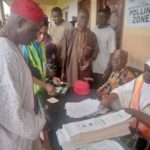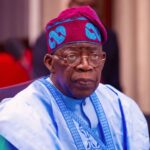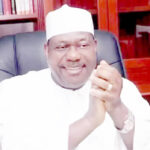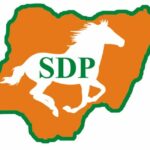For pegging its expression of interest and nomination forms for the presidency at N100m, the All Progressives Congress (APC) is under intense bashing as aspirants, activists, university dons and other stakeholders in the country tongue-lashed the ruling party. Arising from its National Executive Committee (NEC), yesterday, attended by President Muhammadu Buhari, the party announced that aspirants willing to contest for its presidential ticket will pay N100m (N30m for expression of interest and N70m for the nomination form).
Daily Trust reports that the announcement has sparked verbal attacks on the ruling party with many questioning the rationale behind the fixing of the amount, which many described as “ridiculous”.
- Nigerians now afraid of change – PRP presidential aspirant
- Buhari’s senator, Kaita, dumps APC for PDP
For the 2019 general election, the party pegged its presidential forms at N45m while in 2015, it collected N25m.
Recall that the president had while picking the form in the build-up to the 2015 general elections lamented the cost of the forms and also claimed to have taken a loan to buy it.
Unlike the ruling party, the leading opposition Peoples Democratic Party (PDP) had pegged its presidential forms for the 2023 general elections at N40m. In 2018, the party sold it for N12m.
It’s plot to disenfranchise us – Aspirants
Reacting, a presidential aspirant of the party, Adamu Garba II, described the amount as expensive, disenfranchising and demoralising.
“It is also demoralising for the greater part of the Nigerian public, especially the younger demography. Political office should not be for sale. Competencies and capacities should drive who should win political power not money,” he said.
Another presidential aspirant, Usman Iwu, said with the amount fixed, the party would push many of her loyal members out of its folds. Iwu, who said he has been with President Buhari for years, said he never expected the president to keep a sealed lip at this time.
“This is unfortunate. I have been with the general for long but this may push me out of the party.
“Already, there are political parties that are wooing us with the ticket,” he said last night.
A governorship aspirant in Kano under the party, Engineer Bashir Ishaq Bashir, also lamented that the “highly exorbitant” fee for the forms is capable of entrenching corruption because candidates may have to devise means of hiding their election expenses so as not to fall foul of Section 88 of the Electoral Act.
He said the fee spoke negatively on the issue of credibility that the party rode on for the 2015 election “When Buhari said he had to go to the bank to borrow money.”
According to him, “This is not good for the system because it will end up excluding so many people.”

It’s recipe for fraud – Don, lawyer, others
An Associate Professor of Political Science, University of Lagos, Dr Kayode Esuola said it makes no sense for somebody to pay such an amount of money for an office that is meant for service.
“The logic is perverted. If coming out for an election implies that I have a great idea to move my country forward, asking me to pay such amount of money or even pay at all to be able to realise that goal is absolutely illogical, incomprehensible and demeaning.”
Esuola said while all over the world political offices are applied for and the form costs money, the N100m being imposed on presidential aspirants by the APC is too much.
He also said the discount of 40 per cent given to an aspirant below the age of 40 is “ludicrous” because according to him, “an aspirant below the age of 40 in the Nigeria of today where the minimum wage is 30,000, where will that aspirant get even the discounted N60m?”
Also speaking, an activist and Chairman of the Coalition Against Corruption and Good Governance, Comrade Toyin Raheem said any aspirant purchasing form for N100m is not going to the office to serve.
This will dampen democracy, excludes women, youths – Rafsanjani
On his part, Executive Director, Civil Society Legislative Advocacy Centre (CISLAC)/ Chairman Transition Monitoring Group (TMG), Auwal Ibrahim Musa (Rafsanjani), said it would further marginalise youths, women, average citizens and dampen democracy.
“This is an intentional decision to automatically filter out the non-elite and leave the floor open for the same set of politicians and their beneficiaries who have bled the nation thus far.
“After all, the whole idea of democracy is the free will of the people in electing their political leaders, and where such “free will” is manipulated through financial hurdles such as this, the country is further pulled away from the attainment of the best democratic policies,” he said.
On its part, the Human Rights Writers Association of Nigeria (HURIWA) urged the Economic and Financial Crimes Commission (EFCC) and the Independent Corrupt and Other Related Offences Commission (ICPC) to probe the source of wealth of any aspirant who picks the APC’s forms.
National Coordinator of the association, Emmanuel Onwubiko, said in a statement: “Anyone who buys the nomination form at such a scandalous amount should be arrested and handed over to law enforcement agencies such as EFCC or ICPC or the Nigeria Police Force for investigation on the source of the money.”
A political analyst in Jos, Comrade Shamaki Gad, said for the APC to fix that amount just for expression and nomination form, it was glaring that Nigeria’s democracy was in serious problem.
“This singular action is a clear threat to our democracy. It is an attempt to take away the masses from participating in the democracy, “he said.
‘Candidates risk flouting law on election expenses’
Meanwhile, lawyers and political analysts have expressed concerns that the cost of purchasing the forms by the aspirants could end up as an albatross for the party and its candidates to fall short of keeping to the provision of Section 88 of the Electoral Act (2022) on the limitation on election expenses.
Daily Trust reports that the section in its subs-section 1 stated that election expenses shall not exceed the sum stipulated in subsections (2)-(7) and in the referenced sub-sections, the expenses were pegged at N5billion for a candidate at a presidential election; N1billion for a candidate in respect of governorship election; N100million and N70million for candidates in respect of Senatorial and House of Representatives seat respectively while for state house of assembly was pegged at N30million.
As such, the fees stipulated by APC will mean that candidates vying for the senatorial seats would have spent 20 per cent of their maximum election expenses on the purchase of nomination form while their counterparts for the green chamber would have spent about 14.2 per cent of their maximum election expenses on the nomination forms.
For state house of assembly candidates, it is about 6.6 per cent. For a presidential candidate, about two per cent would be spent on purchasing the form, while for governorship candidates, five per cent of the maximum N1billion would have been spent on the forms.
A lawyer, Desmond Orisewezie observed that this development is “a clear template for fraud”, asking the EFCC to be on the lookout.
NEC cedes power to NWC
Aside from the decision on presidential forms, the party’s NEC approved May 30 to June 1, 2022, for the party’s presidential primaries and May 18 for governorship primaries.
Addressing newsmen at the end of the meeting, which lasted for several hours, the APC National Publicity Secretary, Barrister Felix Morka, said the sale of forms for all categories of aspirants would commence this Saturday.
Asked to state the mode of presidential candidate nomination adopted by the NEC, Morka said, “That will be issued subsequently. The details of this meeting will be worked out. The meeting is convened to make decisions on the key points that are already shared.”
The spokesperson also disclosed that “The NEC’s authority has been ceded to the National Working Committee (NWC) and the committee will meet based on today’s event (yesterday) and the authority derived from this meeting to trash out and work out some of the details, which I will share with you in the coming weeks.”
But a source told Daily Trust that the indirect primaries mode has been adopted. The party’s constitution allows for indirect, direct and consensus.
Daily Trust had on Monday reported that 7,800 delegates would determine the fate of the aspirants.
On his part, Kebbi State Governor and Chairman of the Progressive Governors’ Forum (PGF), Senator Atiku Bagudu, said, “There was no explicit discussion about the mode of primaries but the timetable seems to suggest that it’s indirect primaries.”
Daily Trust reports that with the development, the NWC has the power to take valid decisions without the approval of NEC for the next 90 days.
Govs behind crises in our party
Earlier, the APC National Chairman, Senator Abdullahi Adamu, had indicted governors and former governors of the party for the crisis rocking the ruling party. Adamu, a former governor of Nasarawa State said some APC governors and their predecessors were tearing the party apart.
He, however, said the party’s constitution recognises governors as leaders of the party in their states, explaining that there is no such provision for former governors to be in charge.
Adamu said, “I know Mr President is not unmindful of what happened to PDP in 2014/2015. Our party is not immune to a similar fate should it conduct itself in such a way that continues to undermine the legacy of the founding fathers to build this party.”
In his remarks, Buhari warned the leadership of the APC at all levels that the success of the party in 2023 will depend more on their capacity to respect their own extant rules and regulations.
He also advised party leaders against imposing unpopular candidates on the APC.
“Furthermore, I am pleading with all litigants to withdraw cases against the party and put faith in party mechanisms,” he said.
Other top shots of the party who attended the NEC included Vice President Yemi Osinbajo; Senate President Ahmad Lawan; Speaker of the House of Representatives, Femi Gbajabiamila; governors, state chairmen, former governors, among other.
By Ismail Mudashir, Saawua Terzungwe, Muideen Olaniyi (Abuja) Clement A. Oloyede (Kano), Abdullateef Aliyu (Lagos) & Ado A. Musa (Jos)
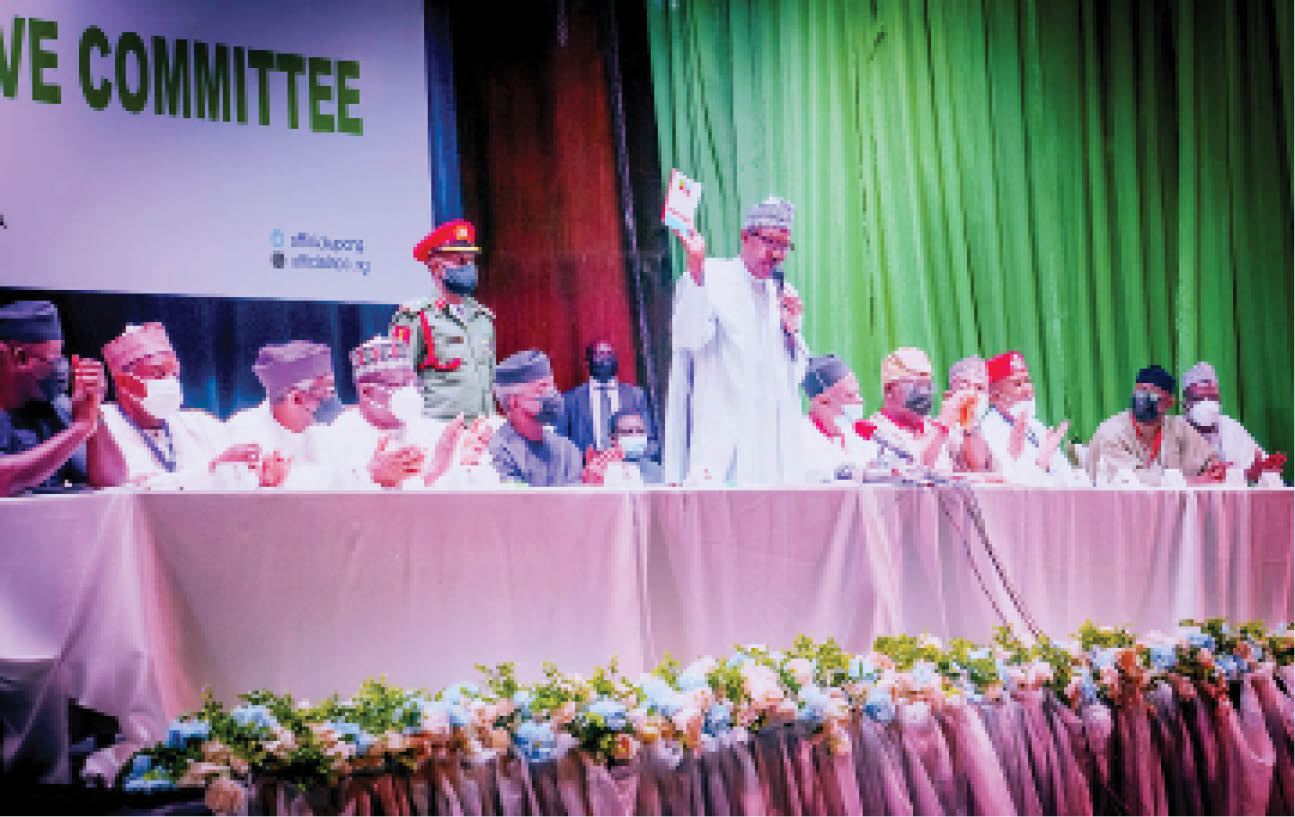
 Join Daily Trust WhatsApp Community For Quick Access To News and Happenings Around You.
Join Daily Trust WhatsApp Community For Quick Access To News and Happenings Around You.